Fraud and identity theft crimes continue to grow at rapid rates. Bank of Gibson City wants to keep you up-to-date on the latest trends, so you can protect yourself from becoming a victim. Being aware and informed are keys to keeping your personal information safe. Below is information on some of the latest fraud and identity theft scams targeting consumers.
Lottery Scams
Lottery Scams are generally telemarketing and Internet scams that target consumers, informing them they are winners of a lottery or sweepstakes. Often times, variations of this scam originate from other countries such as Australia, Canada, the United Kingdom, or Spain and will target older adults.
- Consumers are told that they must pay the taxes, handling fees or conversion fees on the winnings before they can receive their jackpot.
- Consumers are asked to mail or wire a large sum of money to a location outside of the United States, and consumers may never receive any other correspondence.
- In a variation of the scheme, consumers may receive a “certified” check in the mail for a large sum of money, which they deposit into their account.
- The “certified” check turns out to be counterfeit and is charged back to the consumer’s account.
Advance Fee Scam
The consumer receives a letter, fax or e-mail asking for assistance to transfer funds from a foreign country to the United States for safekeeping.
- In appreciation of the consumer’s assistance, they are promised a percentage of the funds – often millions of dollars.
- The consumer is asked to provide an initial payment to secure the transaction (the advanced fee), which is then followed by additional taxes, fees, etc.
- The consumer never receives the promised percentage of the funds.
- In variations of this scheme, the fraudster will send worthless checks that look legitimate to the consumer for deposit with a large portion being wired to another location. Once the checks are deposited, the consumer soon discovers they are left with an overdrawn account.
Internet Sale Scam
The consumer advertises an item for sale on the Internet and a buyer agrees to purchase the consumer’s item. The buyer proposes to send the consumer more than the stated sale price, only to redirect the excess funds to a third party who the buyer owes money.
- The consumer receives the funds and either issues a cashier’s check or wire transfer to the redirected third party.
- The buyer’s check is returned as fraud and the full amount is deducted from the consumer’s bank account.
- The Consumer is left with a large negative account balance and the buyer cannot be located.
Tips for Selling Merchandise Over the Internet
Before selling expensive merchandise over the Internet or through newspaper ads, remember the following basic tips that can help protect you from becoming a victim of various fraud crimes.
- Be cautious of dealing with potential buyers who agree to buy the merchandise unseen – especially if you are selling items such as a vehicle, computer equipment, electronic equipment or other high-end items.
- If the purchaser indicates he is overseas or planning to ship the merchandise overseas consider this a major red flag of potential fraud.
- A sale made over the Internet should not call for you, the seller, to provide funds back to the purchaser.
- If you receive a check that claims to be an Official Bank Check for an amount greater than the purchase with a request to wire transfer the excess funds back to the purchaser or another party – this should be a red flag that the transaction is potentially fraudulent.
- Remember that any check can be counterfeited or altered, including checks claiming to be Official Bank Checks, Cashier’s Checks, Certified Checks or Personal Money Orders. As the depositor, you can be held responsible for the overdrafts or losses of the deposited check item if is not honored by the drawing bank – even if the check hold on the item has expired and your bank has made the funds available to you. Always ask to talk to your bank’s fraud prevention department and explain the details of the transaction to them.
If You Become a Victim
Contact Bank of Gibson City immediately and alert us to the situation (217) 784-4233.
If you have disclosed sensitive information to unauthorized individuals, you should also contact one of the three major credit bureaus and discuss whether you need to place a fraud alert on your file, which will help prevent thieves from opening a new account in your name. Here is the contact information for each bureau’s fraud division:
888.766.0008
PO Box 740241
Atlanta, GA 30374
888.397.3742
PO Box 1017
Allen, TX 75013
800.680.7289
PO Box 6790
Fullerton, CA 92834
If you wish to report a claim, please use the following resources to do so:
- United States Secret Service, Springfield Office (217) 726-8453
- The Internet Crime Complaint Center, www.ic3.gov
How to Protect Yourself
Never provide your personal information in response to an unsolicited request, whether it is over the phone or over the Internet. If you did not initiate the communication, you should not provide any information.
If you believe the contact may be legitimate, contact the financial institution yourself. You can find phone numbers and web sites on the monthly statements you receive from your financial institution, or you can look the company up in a phone book or on the Internet. The key is that you should be the one to initiate the contact, using contact information that you have verified yourself.
Never provide your password over the phone or in response to an unsolicited internet request. A financial institution would never ask you to verify your account information online. Thieves armed with this information and your account number can help themselves to your savings.
Review account statements regularly to ensure all charges are correct. If your account statement is late in arriving, call your financial institution to find out why. If your financial institution offers electronic account access, periodically review activity online to catch suspicious activity.
Please note, all of the suggestions, tips and guidance provided in the above sections are for informational purposes only. They are to be used as general guidelines provided to assist fraud victims in understanding some of the steps they may take to help protect their personal and financial interests. The suggestions are not all-inclusive and should not be considered nor interpreted as legal, accounting, financial or technical advice. You may wish to consult your attorney, accountant or other advisor for specific advice, guidance or recommendations concerning this topic.


 Member FDIC
Member FDIC Equal Housing Lender
Equal Housing Lender